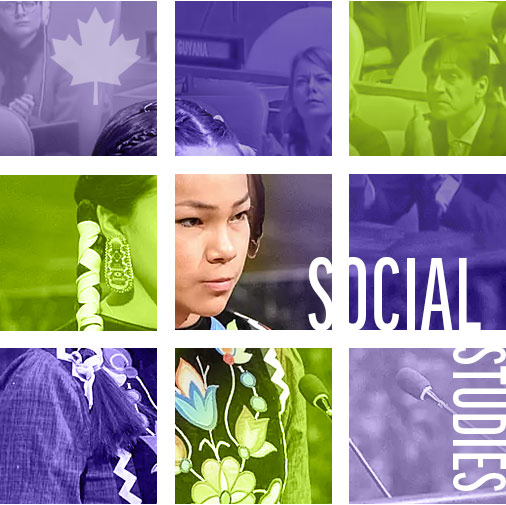BC First Peoples 12
Teacher(s)
Holly Mair
Prerequisite
Successful completion of Social Studies 10 is required.
Description
In BC First Peoples 12 course we will explore the history of the WSANEC Peoples, their cultural beliefs and traditions, and what is currently being done to reclaim and strengthen their identity and community. In exploring the current issues that face the WSANEC Peoples and all BC Indigenous, we will unpack the history behind how these problems came to be in the first place and we will look at the various solutions that are being put in place to move us forward towards reconciliation. Topics include the Saltwater People and their territory, the importance of access to marine resources for the WSANEC People, the Douglas Treaties and land purchases from the Indigenous Peoples on Vancouver Island, and the importance of family and kinship ties. Authentic resources from WSANEC Leadership Council and numerous Elders are incorporated.
- The impact of contact and colonialism continues to affect the political, social, and economic lives of B.C. First Peoples.
- Through self-governance, leadership, and self-determination, B.C. First Peoples challenge and resist Canada’s ongoing colonialism.
- Cultural expressions convey the richness, diversity, and resiliency of B.C. First Peoples.
- The identities, worldviews, and languages of B.C. First Peoples are renewed, sustained, and transformed through their connection to the land.
The course consists of four units that address the four big ideas of the curriculum:
- Unit 1 The Saltwater People: A look at who these People are, their territory, school district, oral histories and their seasonal movements.
- Unit 2 Importance of Marine resources: Importance of clam gardens and reef-net fisheries, the demise of these industries and their future regrowth.
- Unit 3 Douglas Treaty: Understanding a variety of Treaties including the Douglas treaties and their effects on the Indigenous peoples.
- Unit 4 Strength of Family: Importance of family and kinship ties, sharing of teachings and language, effects of residential schools and reclaiming education.
For each unit, there are many opportunities for students to practice their skills before submitting a major assignment or in the case where the student is already comfortable with the material, there is an opportunity to move forward. You analyze your needs and you set the pace. We help you achieve those goals!
Type
online
Credit
4
Delivery
Student-paced, online Students will communicate with the teacher for support as needed.
Summary
4 Units Total of 25 assignments 1 Supervised test or Presentation
Assessment
Assessment is the systematic gathering of information about what students know, understand, and are able to do in relation to the curricular competencies and content for this course. Here are the key ways you will be assessed:
- "Formative" submissions on which descriptive feedback is given and no grade.
- Polished submissions in a variety of forms.
- Self-assessment about student learning and growth conducted through phone, electronic, or in person interviews.
- Final project.
Support
Zoom or Teams support sessions can be organized with the course teacher.
Materials
There is no textbook for this course. Web camera required for proctored test and presentation.
Requirements
Basic Technical Requirements
More Info
This course satisfies the requirements for a Social Studies 11 credit as well as the Ministry of Education's Indigenous-Focused Graduation Requirement credit.
Outcomes
This course has been based on the BC Curriculum document which can be found at: https://curriculum.gov.bc.ca/curriculum/social-studies/12/bc-first-peoples

